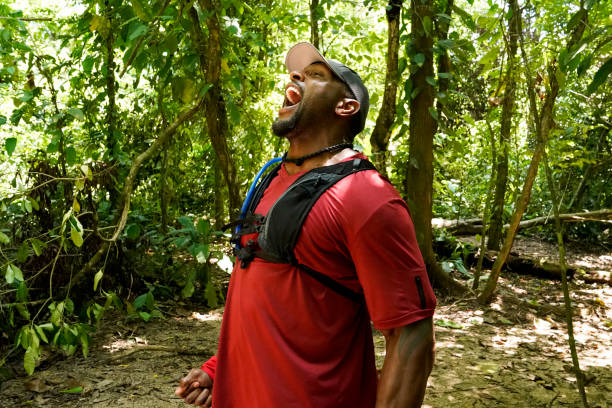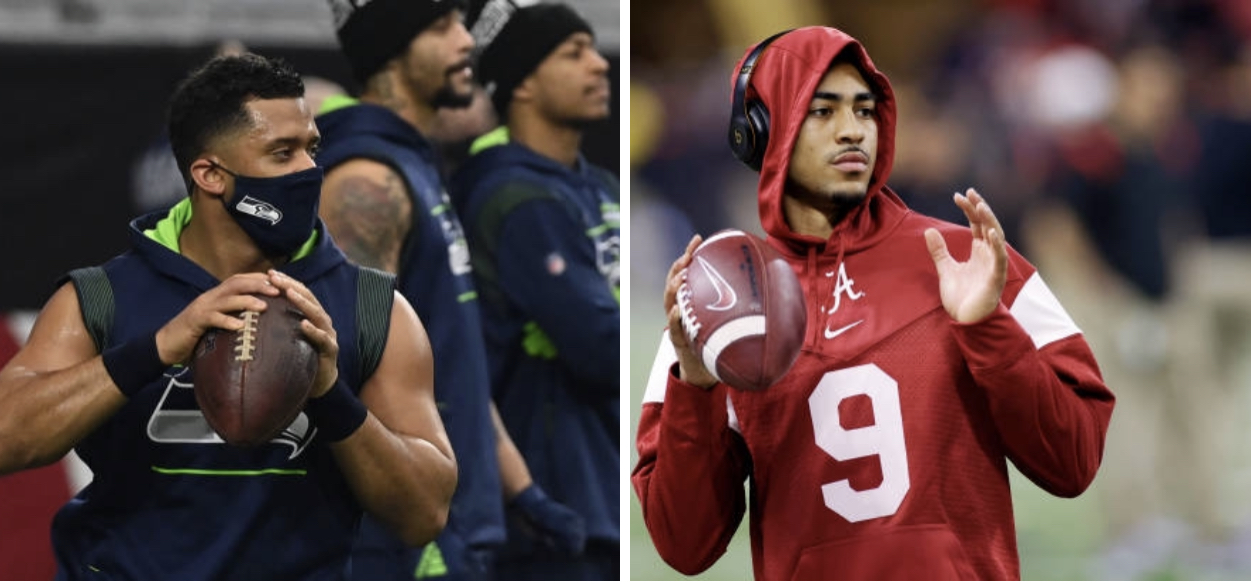Long before Ray Lewis had gotten word that his “nephew” had been cut by the Washington Redskins, Nico Marley had already gone through his progressions.
As an undersized but hard-hitting linebacker at Tulane University from 2013 to 2017, Marley, an undrafted free agent that year, was selected by Washington — and given the opportunity to contribute to a family legacy already known around the world.
His playmaking immediately made him a crowd favorite at FedEx Field, even earning him MVP honors in Washington’s first preseason game (after he collected a sack and four tackles against Baltimore). But the grandson of reggae icon Bob Marley was waived four months after being signed.
It wasn’t ability or heart that halted his process; ultimately it was his 5-foot-8 and 200-pound frame, something he’d fought to overcome to this point.
Nice swim move by Nico Marley. RG had no clue how Marley skipped by him so easily, sack. pic.twitter.com/n9WgdJvhI0
— Mark Bullock (@MarkBullockNFL) August 11, 2017
Lewis, the Hall of Famer who’s in the GOAT conversation for linebackers, was not exactly ready to accept that Nico wasn’t deemed good enough for the big leagues. Having played alongside Nico’s father, Rohan, at the University of Miami, Lewis had seen this script before: Rohan, who also played LB, was Nico’s height and weighed five pounds more.
“I’ll tell you a funny story,” Nico told The Shadow League. “I got into an argument with Ray Lewis — really it was a discussion. He was with Showtime doing analyst work for “Inside the NFL” and he used to come stay with us from Sunday to Tuesday and I’d have to sleep on the couch. He was saying I could switch [from linebacker] to safety. And, I was, like, ‘Man, I don’t even wanna play anymore.’ I had to tell him, ‘Look, Uncle Ray — I’m good with myself. I don’t feel the need.’ “
Of course, that’s Ray Lewis being Ray Lewis, but Nico was way ahead of him. He’d long pondered whether it was worth the stress to wait around for a call from another NFL team, or to take the CFL up on its offer to try out with Toronto; he just knew — it was time.
“I was right there,” Rohan recalls of the conversation between his old friend and his son.“Ray was kinda sayin’, ‘Nico, you’re a baller — you can play the game but maybe with your body type, you need to maybe play in the secondary.’ But my son never wanted to do that. He said he didn’t want to re-invent himself. He said he was ready to try something else in a different field.”
‘Go do your own thing …’
After Marley got the call from then-Redskins president Bruce Allen, he didn’t retreat to his Miami home base. Instead, he found his dad, and together they found Fashion Week in New York. It was just the escape Nico needed — after the official end of his athletic journey.
“I had a lot of fun that week,” recalls Nico, who was born in Haiti and lived in Jamaica for two years before moving to Miami when he was 4. “It was my first sense of freedom: I didn’t feel tied to anybody; it was just like, ‘Wow — this is life’ and I got a chance to live in a sense, and fell in love with that freedom and that energy.”
Playtime didn’t last long; soon, Nico would have to figure out his next move. And, with a “serial entrepreneur” dad like Rohan — who’s made his name building multiple business ventures after his own short-lived professional football career ended — he knew there wouldn’t be much time to chill.
“Initially I brought him in for us to work together,” explained Rohan, the founder of Marley Coffee, an organic coffee plantation and farming business in Jamaica’s Blue Mountains. “But I realized as a son he wanted his own thing, and had to step back and realize that he has a vision too as an entrepreneur and businessman. So I said, ‘Go do your thing,’ and figured later on when he needs me, we’ll find a way to merge or work together.”

Nico Marley traded football for the boardroom like his father Rohan, founder of Marley Coffee
It was hardly a matter of if Nico would unleash his entrepreneurial super powers, but when.
“The business route was a natural heirloom that’s always been a part of my family — especially with the plant [cannabis],” explains 25-year-old Nico, who on April 22 launched Lion X, a cannabidiol (otherwise known as CBD) brand and line, with athletes in mind.
“Bob [Marley], years ago, said, “Herb is the healing of the nation,” continued Nico, whose Lion X line of products includes oils, soft gels, gummies and a soothing balm — all being sold and distributed via his website.
“I took that to heart, and it was almost like a perfect storm, and I was able to merge my two lives — my athletic life and my family background, just being around the plant and using it for healing,” explained Nico, who co-founded the business with his cousin, Gaetan Khawly.
This is hardly a new trend. Nico joins a list of former and current athletes who champion CBD as a means of treatment — from soccer star Megan Rapinoe to retired NHL right winger Riley Cote to retired NFL QB Jake Plummer and ESPN’s Jay Williams.
While their sports and backgrounds vary, the one constant is a belief that CBD, one of the 100-plus chemical compounds, or cannabinoids, found in cannabis plants, works — helping them sleep better; improving muscle recovery, and even aiding with more serious conditions, among them epilepsy.
Part of the foray into entrepreneurship, Nico is learning, is understanding that he’ll have to be a messenger of facts — and dispel untruths. The biggest point is that, unlike its close relative tetrahydrocannabinol, or THC, CBD cannot get you high.
Clarified Nico: ”We deal in CBD — it’s legal; there’s less than .3 percent THC.”
“The main misconception is people thinking you can get high from it,” he continued. “Or that it’s illegal. But I understand. Not everybody knows, and people have to be educated; but it doesn’t get you high, and it is legal.”
https://www.instagram.com/p/B_X_OZoHgC9/?utm_source=ig_web_copy_link
Retired NBA forward Al Harrington, who played 16 seasons for seven teams, including Indiana, New York and Atlanta, is the founder of cannabis company Viola. He’s been a loud and unapologetic advocate for CBD, and has lobbied his former league to move in the same direction as Major League Baseball, which no longer drug tests for the substance.
“I firmly believe that CBD is the world champion in the space. [It] will be the one to lead the charge into cannabis being more acceptable; but I think the stigma is changing a lot. Most people, I think, understand — and obviously have seen how the industry is moving forward.”
CBD and cannabis are often looped together as one and the same. But a lot of people see and understand CBD as different from marijuana, explains author and cultural critic Toure.
“And even so, the general public’s view of marijuana has softened tremendously, and people generally understand this is not some hard drug that makes people go crazy; the notion that it’s a gateway drug has been defeated,” explained Toure, host of the popular Toure Show podcast and upcoming “Who Was Prince?” podcast miniseries.
“As for CBD, I know I see moms [and] middle-age people who would scoff at smoking a joint but would think nothing of taking some drops of CBD. I mean, they sell CBD products right next to the cash register at the bodegas in Brooklyn — like right next to it, as the last little thing they’re trying to get you to buy.”
As it relates to professional sports, Harrington does not mince words — suggesting that part of professional sports’ reluctance to allow its players to use marijuana, for medicinal purposes or otherwise, comes down to the leagues’ racial makeup.
“If you look at the two leagues that police cannabis the hardest — the NBA and the NFL — [these] are the two leagues that are dominated by black athletes,” explained Harrington,” he said.
The NFL is 70 percent black while 81.9 percent of the NBA are people of color, according to TIDES 2019 NBA Racial and Gender Report Card.
https://www.instagram.com/tv/B9WuGitghcx/?utm_source=ig_web_copy_link
“They can say that they’ve never thought about it like that and all that, but I think it’s all BS. I just feel like at this point, how can they not see the true benefits of cannabis and just allow it. They don’t even have to make the announcement. They can just take the testing away from players — it’s not even that serious — or ease the restrictions to the point where a positive test doesn’t even matter.”
And the times they are a changin’.
In 2018, the World Anti-Doping Agency removed CBD from its list of banned substances. It’s a step, Toure says, that should create an opening for more change on the horizon, particularly with the NBA.
“I don’t see the racial component slowing down the NBA’s [incentive] to move,” he continued. “[The NBA] understands that tons of fans smoke while watching the game at home, and don’t judge the players negatively. I hear [athletes] talk about ‘all the stuff that they give us’ — inflammatories and what have you to get through the season. It’s a very old-school ‘Reefer Madness’ thinking of, like, ‘Oh, no — don’t allow them to smoke weed.’ It’s just kinda silly.”
“I had to be a different person…”
Nico admits that he’s been two people for a long time: Nico the football player was a different guy. The Nico off the field is a guy he’s getting used to, and he quite likes him.
“When I was playing football — and being smaller than everybody — I had to be like a different person [off] the field,” he explained. “Not that I was mean, but I didn’t really speak much — I just had this different energy about me. After I stopped playing, I became open — I started speaking to people more … I turned into the man I really liked, and I became real comfortable with my decision.”
It’s that kind of talk that his dad likes to hear.
“I’m proud of him,” added Rohan, who — along with his business partner, Alessandra Lo Savio — provide ongoing counsel to Nico.
“There’s endless things that can be done with CBD in different ways. It’s the perfect time to start a business online — and it’s an essential business; so he’s right on point. He went to school and got a degree in Business Marketing, so it’s great that he’s utilizing the things he learned in school and putting that to work now.”
Added Nico: “I feel like I left the game gracefully. I was real content with it. Like Drake said in [the] song [“Trophies”], ‘If I was doing this for you then I’d have nothing left to prove.’ Right? So for me, I was good … It wasn’t about anybody else; I was comfortable with my decision. I didn’t feel I needed to go back and force it and be miserable.”
As long as Uncle Ray is cool with that.


